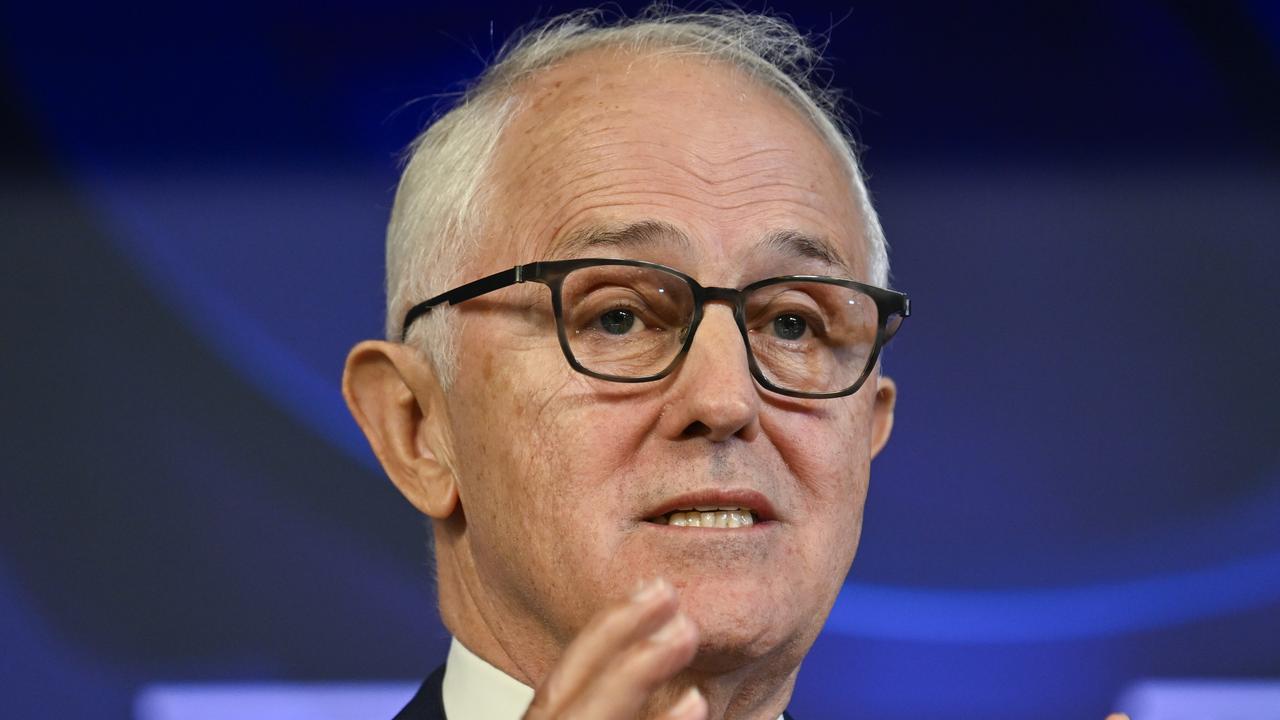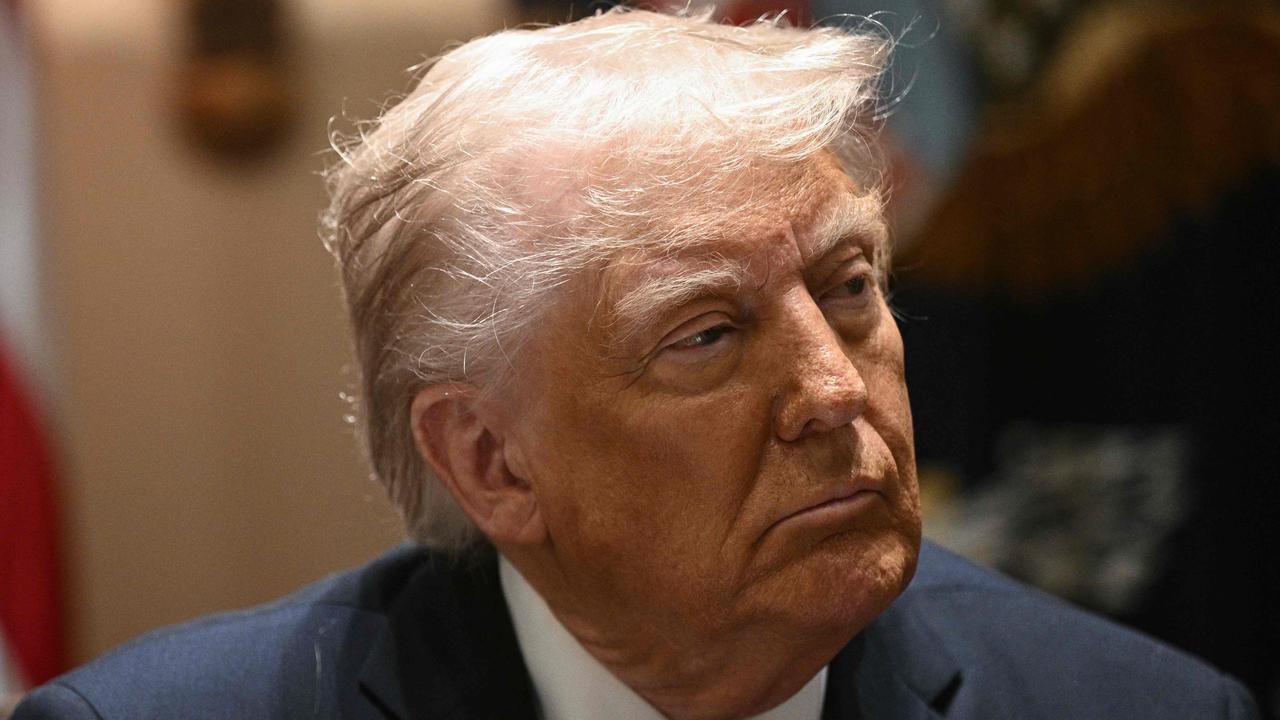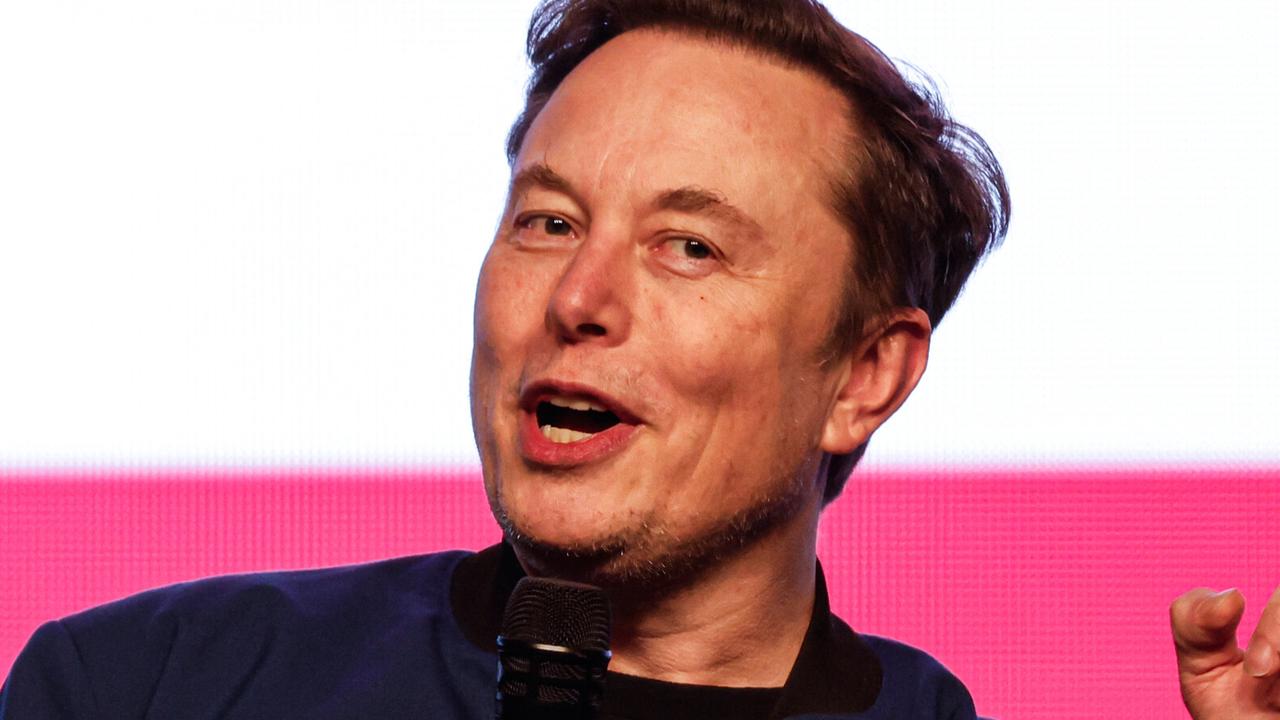Why a winner of the US election may have already been decided
Who is going to win the US election remains the key question. But this is why there may already be a winner between Trump and Biden.

In less than two weeks we will know whether it will be Joe Biden or Donald Trump in the White House for the next four years.
We asked you what you wanted to know about the US election before polling day and the response was overwhelming. More than 2000 questions have been submitted so far and this is what you wanted to know.
We will continue to answer your questions in the lead up to the election.
WHO IS GOING TO WIN?
After 2016, I think we all know better than to predict the result ahead of time. There was a very late surge to Donald Trump four years ago, as voters who didn’t much like either candidate finally settled on him over Hillary Clinton in the closing days.
Here’s what we can say with confidence about the 2020 race. Joe Biden is almost certainly going to win the national popular vote. He has consistently led the national polls, with gaps well beyond any conceivable margin of error.
The key word there is “consistently”. There was much more volatility four years ago, with Ms Clinton surging to big leads, only for Mr Trump to repeatedly catch up. This time, Mr Biden’s lead has been remarkably stable, and the President has never even come close to him.
Ultimately though, the national popular vote doesn’t matter. It’s all about winning enough states to claim a majority of electoral votes. And things are significantly tighter in the key battleground states — places like Florida and Ohio.
Mr Biden still leads in virtually all of these key states, according to the polls, but by margins small enough that Mr Trump could still make up enough ground.
Those relatively small margins also mean we can’t rule out a repeat of 2016, when Mr Trump managed to pull off razor-thin victories in a string of swing states, even though the polls suggested he was going to lose them. Mr Biden’s 8 per cent lead in Michigan, for example, is probably safe. But his 1.5 per cent lead in Florida is absolutely not.
That said, there are two really big problems for the President here. First, Mr Biden is not Ms Clinton. In 2016, large majorities of Americans disapproved of both candidates. This time around, they still don’t like Mr Trump, but Mr Biden’s approval rating is actually slightly better than his disapproval rating. So Mr Trump is running against a significantly more popular opponent.
Second, there appear to be far fewer undecided voters this time. As we mentioned before, there was a really late surge towards Mr Trump four years ago — just enough to give him the win — and it was only possible because so many people waited until the end of the campaign to make up their minds.
In 2020, that large pool of undecided voters does not exist.
RELATED: Test your news knowledge with our easy quiz
WHY DO WE CARE?
For now at least, the United States remains the world’s most influential nation. Its president is arguably the single most powerful public official on the planet, or at the very least, in the Western world.
That, in a nutshell, is why we care about US politics. The American president’s decisions and rhetoric frequently affect the rest of the world, including Australia. And the US alliance is a key element of our own foreign policy.
Of course, you might just find Donald Trump entertaining, and that is also a perfectly valid reason to follow this election.
WHY CAN’T THEY HAVE A SIMPLE STRAIGHTFORWARD ELECTION INSTEAD OF THE LOOONG DRAWN OUT, SUPER-EXPENSIVE, AND RATHER COMPLICATED PROCESS THEY HAVE NOW?
The first Democrat to announce he was running for president this time around, John Delaney — don’t worry, no one else remembers him either — did so on August 10, 2017. That was 1181 days before the general election. So yeah, these election campaigns are farcically long.
The fundamental answer to your question is that there’s no law in the US defining how long the campaign should be. Such laws do exist in most democratic countries, such as Australia, and they limit the length of the campaign.
We also operate under a parliamentary system, which means the election date is governed by when the prime minister decides to dissolve parliament.
Under America’s system of government, the presidential election is held like clockwork every four years. By law, it takes place on “the Tuesday next after the first Monday in the month of November”. So unless November 1 happens to be a Tuesday, it’s always on the first Tuesday of the month.
Candidates don’t have to wait to find out when the election is before they pull the trigger. They already know.
Then there is the primary process, through which each major party selects its nominee for president. This isn’t done in one day — all 50 states vote gradually over a period of months. It dramatically lengthens the election season.
You mentioned the other big factor here, which is the influence of money in US politics. Any candidate needs an absolute ton of it to mount a credible campaign, which means they need to start fundraising very early. Wait too long, and your campaign will promptly run out of cash, leaving you with no choice but to drop out of the race.
By the time we get to the end of the general election campaign, both candidates have raised (and spent) an absurd amount of money. Donald Trump and Joe Biden are both at about $1.5 billion.
Some countries have laws restricting the ways political parties spend money. Others simply wouldn’t accept such stupendous sums being spent on politics. America is different, and that screws with its system in a bunch of ways — one of which is that it compels candidates to start running well over a year in advance.
RELATED: Key states that will decide the election
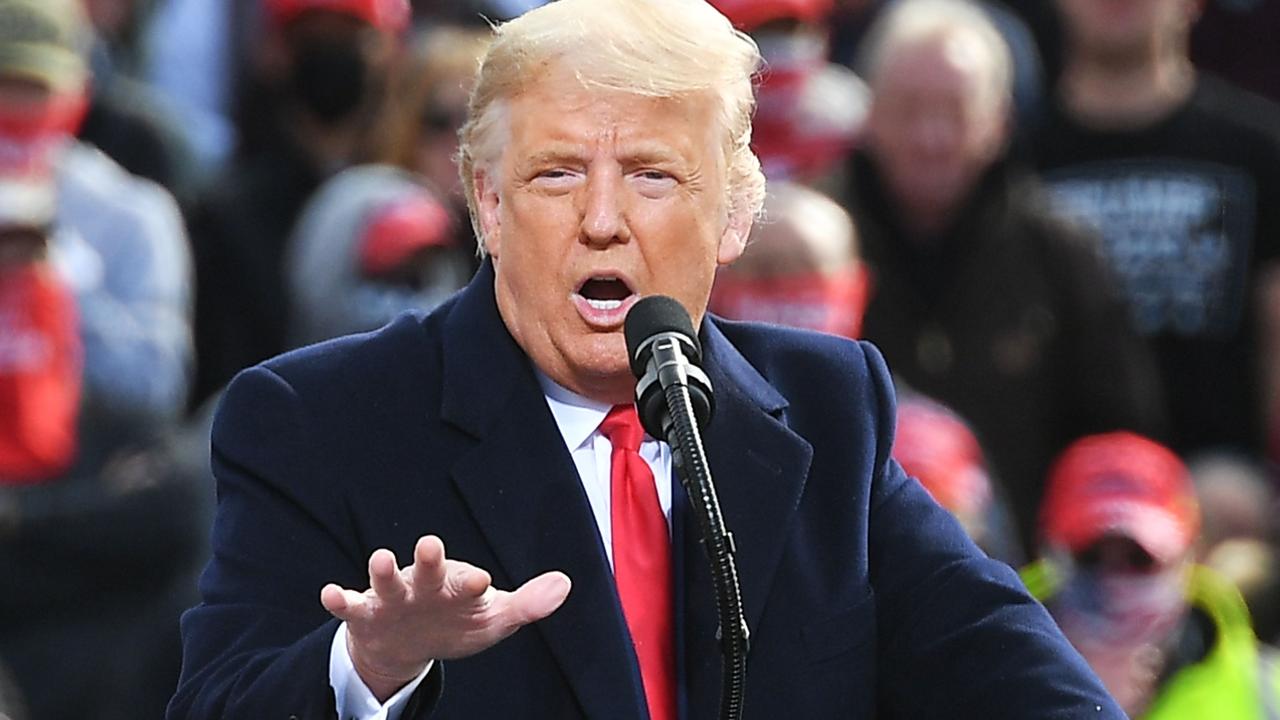
WHY WOULD PEOPLE VOTE FOR DONALD TRUMP? WHAT IS HIS APPEAL?
People have all sorts of reasons for supporting Mr Trump.
Some of them are stylistic. You’ll often hear the President’s supporters speak about how he isn’t a politician; how he “tells it how it is”; how he’s the only one who “fights” for them and gives them the truth.
As someone who has spent the last four years fact-checking Mr Trump, I would certainly dispute that last part. But regardless, tens of millions of Americans feel he is a straight shooter.
There is a real sense, among so many people in this country, that they have been forgotten, ignored and disrespected by their political elites. This is particularly the case in more conservative, rural areas, where the economic upheaval of globalisation has caused an incalculable amount of pain. Mr Trump appeals to them on a fundamental level.
If you watched the final presidential debate, you probably noticed Mr Trump hammering Joe Biden for being a career politician, someone who spent 47 years in Washington without (in Mr Trump’s telling of it) getting much done.
“It’s all talk, no action with these politicians,” Mr Trump said at one point. That line goes right to the heart of his appeal — politicians are full of hot air, and his supporters believe he’s not one of them.
The public image Mr Trump crafted as host of The Apprentice is really useful in this regard. His actual record in business is mixed, but people know him as the carefully crafted personality they saw on their TV screens — brash and maybe a little unsavoury, but super successful and able to get things done.
Say you’re someone who really, really doesn’t like Mr Trump’s style though. You might still agree with many of his policies, to the extent that you’re willing to vote for him.
Perhaps you’re in favour of lowering taxes, or building the border wall, or getting rid of Obamacare. You might be happy that Mr Trump has put two conservative justices on the Supreme Court, with a third on the way.
You can certainly mount an argument that when it comes to good government, policy is more important than personality.
Or maybe you fear what the other side of politics will do, should Mr Biden become president. Plenty of people four years ago held their noses and voted against Hillary Clinton, not for Donald Trump. The same logic could apply here.
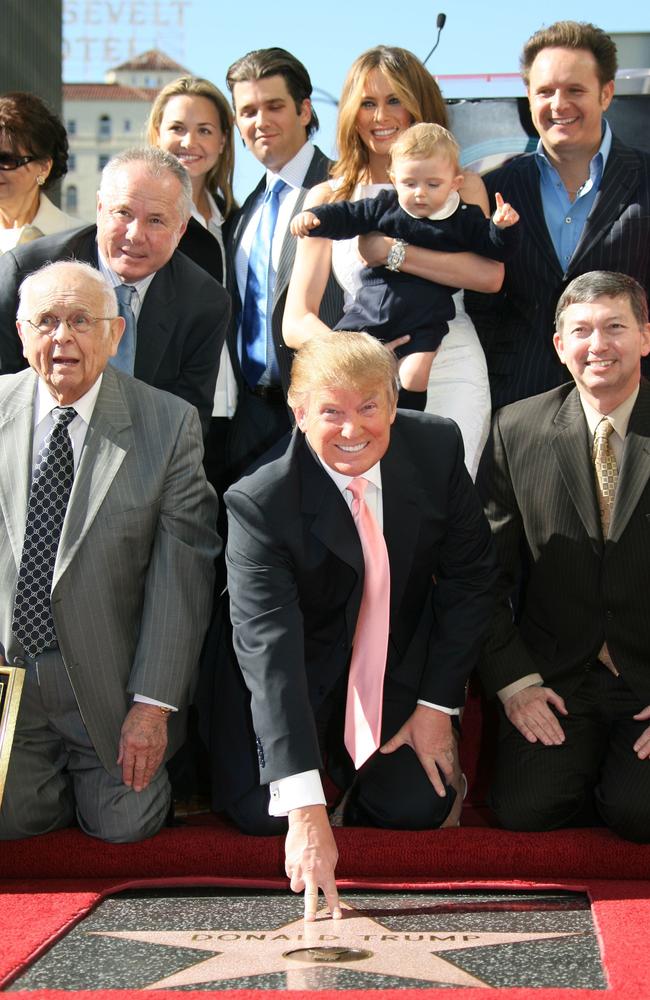
WILL TRUMP GET THE ECONOMY BOOMING AGAIN?
I’d argue this is unknowable. Mr Trump has been vague about his plans for a second term, and the economy is hard to predict at the best of times.
What we can say is that the US economy will, at some point and to some extent, bounce back. That recovery has already started — after losing 22 million jobs towards the beginning of the coronavirus pandemic, America has since added 11 million. So it’s about halfway back to its pre-crisis employment level.
Will the President get it “booming” though? A recovery is one thing, a boom is another, and I think we’ll just have to wait to find out.
While we’re on the subject, we may as well fact check Mr Trump’s frequent boasts about the state of the economy before the pandemic hit.
“We created the greatest economy in the history of our country,” he recently told 60 Minutes.
“Virtually every number was the best. We had the best economy ever.”
Was he right? Well, Mr Trump can certainly point to the unemployment rate, which got as low as 3.5 per cent before the virus struck. That was the best it had been since 1953.
Other common metrics, such as GDP and wage growth, were healthy but nowhere near historic levels.
GDP growth, for example, averaged between 2 and 3 per cent, a little stronger than the average throughout Barack Obama’s full eight years in office, but a little weaker than in his last few years before handing over to Mr Trump.
We should also note that both Mr Obama and Mr Trump benefited from the Federal Reserve keeping interest rates at extremely low levels, of the sort usually seen during more troubled economic times.
So you can cherry pick statistics to suit either side of the argument here. Mr Trump is objectively wrong when he claims “virtually every number was the best”, but he can mount a convincing case that the economy was in a strong position under his stewardship before the pandemic came along.
WHAT ARE PRESIDENT TRUMP’S POLICIES FOR HIS NEXT TERM? HAS HE GOT ANY?
The President spends most of his time on the campaign trail talking up the achievements of his first term, and painting a dark picture of a potential Biden presidency.
You hear a lot less about what he’ll do with his own second term, aside from some vague promises about rebuilding “the greatest economy in history” and protecting law and order.
That said, the Trump campaign did recently identify his policy priorities going forward. Here is the list it came up with, in order.
Mr Trump will aim to: establish a permanent manned presence on the moon, send the first manned mission to Mars, build “the world’s greatest infrastructure system”, establish a national high-speed wireless internet network, develop a coronavirus vaccine by the end of 2020, make “all critical medicines and supplies” for healthcare workers in the US, refill the country’s medical stockpiles, cut prescription drug prices, lower healthcare insurance premiums, and ensure all people with pre-existing conditions are covered by health insurance.
Those last couple of priorities are going to become particularly important if the Supreme Court strikes down Barack Obama’s signature healthcare law, Obamacare, in the coming months. It is hearing arguments on the matter a week after the election.
Mr Trump has been promising his own healthcare plan to replace Obamacare for years now — it’s perpetually coming “soon” or in “the next few weeks” — but has yet to release one. Now would probably be a good time.
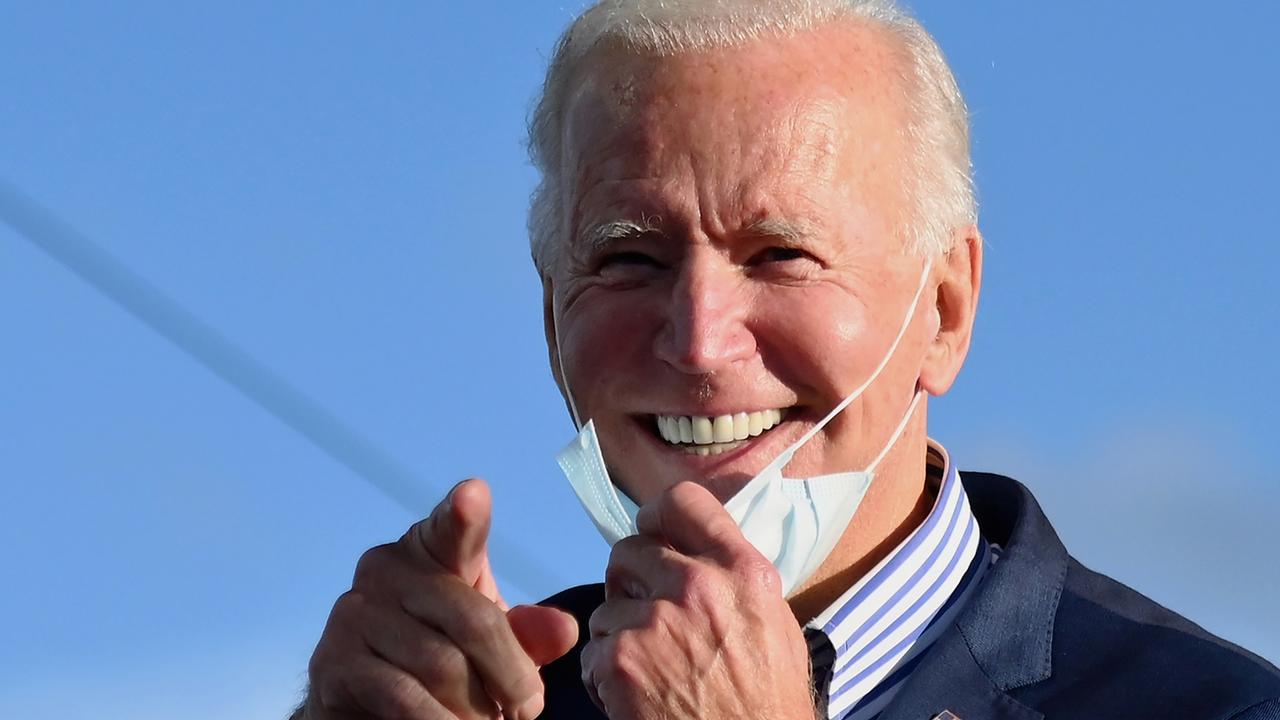
WHO IS JOE BIDEN? WE KNOW ALL ABOUT TRUMP BUT NOTHING ABOUT HIS OPPONENT OR THE THINGS - GOOD OR BAD - THAT HE HAS DONE.
Donald Trump is indisputably correct when he describes Joe Biden as a “career politician”.
He was a US senator for 36 years, then served as Barack Obama’s vice president for eight.
That’s a lot of time in Washington. So what did he do with it? I’ll give you a few examples of the things Mr Biden considers achievements, and then a couple of things he screwed up.
As a senator, Mr Biden sponsored the original Violence Against Women Act, which was followed by a large decline in domestic violence. He also sponsored the PROTECT Our Children Act, which helped law enforcement agencies go after child sex predators. And in 1994, he co-authored a wide-ranging crime bill which led to a reduction in violent crime - but an increase in incarcerations. It also imposed a ban on the sale of some semi-automatic weapons, which has since expired.
In his role on the Senate Judiciary Committee, Mr Biden oversaw the confirmation of the late Supreme Court justice Ruth Bader Ginsburg, a progressive legal icon who was the second female justice in the court’s history.
And as Mr Obama’s vice president, he was deeply involved in a bunch of policy negotiations with Congress, including the passage of legislation to get America through the Global Financial Crisis.
More broadly speaking, Mr Biden developed a reputation for working across the aisle with Republicans, which he has frequently contrasted with the current partisan rancour in Washington.
I mentioned the 1994 crime bill as an achievement, because Mr Biden still stands by most of it, but it is also one of the biggest stains of his record. Mr Trump frequently attacks him over it, and so did his rivals in the Democratic primaries.
“The idea that the crime bill generated mass incarceration — it did not generate mass incarceration,” Mr Biden said earlier this year, defending the bill.
During the final presidential debate, he did concede a separate bill he voted for in the 1980s was an error. This one led to thousands of Americans, particularly African-Americans, being jailed for minor drug offences.
“It was a mistake. I’ve been trying to change it since,” he said.
He now advocates treatment, rather than incarceration, in response to such offences.
One last mistake that Mr Biden openly acknowledges is his vote in favour of the Iraq War.
So what we’re looking at here is pretty much the sort of record you would expect from a long-serving senator and vice president. Mr Biden has done some worthy things, and he’s made some mistakes too.
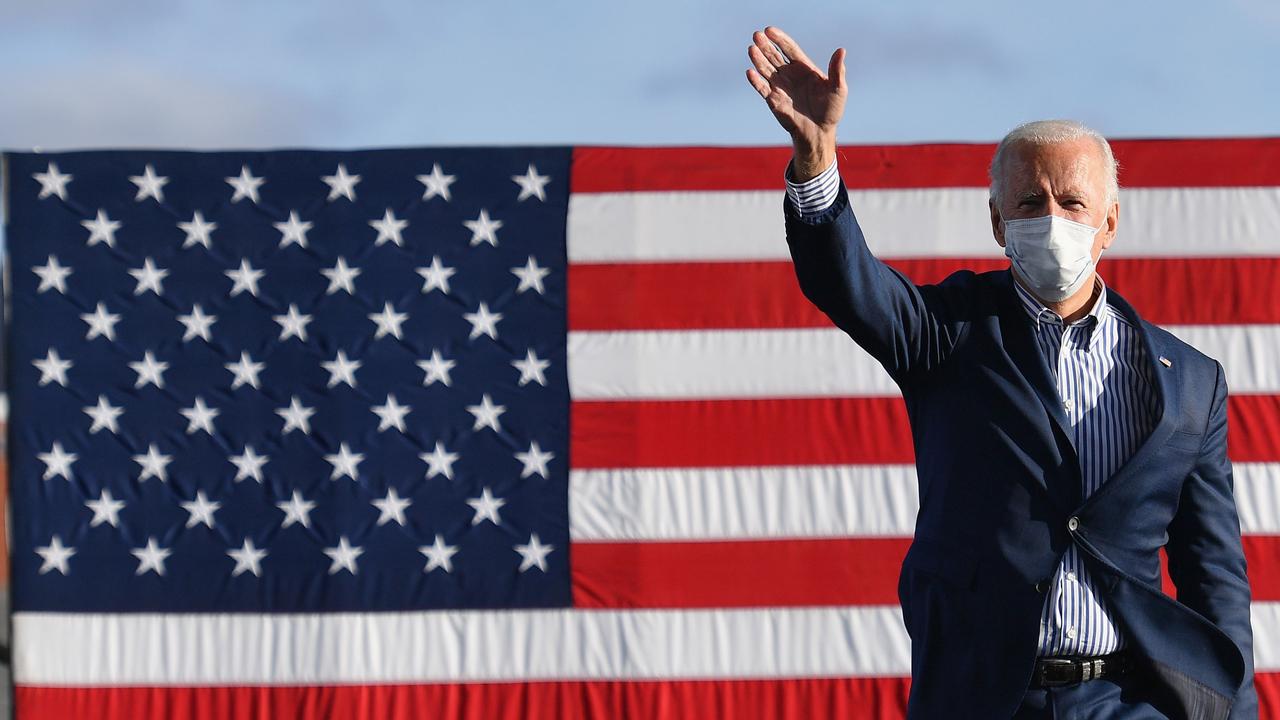
WHAT IS BIDEN’S POSITION ON CHINA? WILL HE MAINTAIN PRESSURE ON CHINA REGARDING THE SOUTH CHINA SEA, TAIWAN, AND UNFAIR MARKET ACCESS RULES IN CHINA?
I want to preface this by saying that all promises and rhetoric on China from American presidential candidates should be treated with a healthy amount of scepticism. There’s a long history of candidates talking tough on China before elections, then quietly failing to follow through after winning power.
That said, Mr Biden was asked about this very subject during the final debate, and he promised he would “make China play by the international rules”.
“We need to have the rest of our friends with us, saying to China, ‘These are the rules. You play by them, or you’re going to pay the price for not playing by them, economically,’” he said.
That is, in essence, Mr Biden’s stance. He plans to recruit international allies who have been alienated by President Trump to exert combined diplomatic pressure on China.
“The United States does need to get tough with China. If China has its way, it will keep robbing the US and American companies of their technology and intellectual property,” he wrote earlier this year.
“The most effective way to meet that challenge is to build a united front of US allies and partners to confront China’s abusive behaviours and human rights violations, even as we seek to cooperate with Beijing on issues where our interests converge, such as climate change, nonproliferation and global health security.”
Mr Biden has taken to calling Chinese President Xi Jinping a “thug”, and has slammed Mr Trump’s previous praise for him (the President has had a love-hate relationship with Xi, but since the pandemic hit he has been consistently critical of China).
All of this represents a hardening of Mr Biden’s rhetoric on China. In the past, he welcomed the Asian power’s rise as a “positive development” for the US and the rest of the world, expressing hope that China would abide by international norms.
BIDEN KEEPS SAYING ANTIFA ISN’T “REAL”. YOU CAN BUY A MEMBERSHIP ONLINE. TELL US WHAT HE WILL DO TO OUTLAW FAR-LEFT EXTREMISTS.
I believe you’re alluding to a quote from the first presidential debate, when Donald Trump pressured Joe Biden to condemn Antifa. Here’s the exchange in question.
“Somebody’s got to do something about Antifa and the left, because this is not a right-wing problem, this is a left-wing problem,” Mr Trump said.
“His own FBI director said unlike white supremacists, Antifa is an idea, not an organisation, not a militia,” Mr Biden interjected.
He was referring to congressional testimony from FBI Director Christopher Wray.
“It’s not a group or an organisation. It’s a movement or an ideology,” Mr Wray said, while stressing Antifa was nevertheless a “real thing” the FBI was monitoring.
That was consistent with the sort of language you see about Antifa in media reports, which tend to describe it as a loose affiliation of left-wing activists. Mr Trump disagrees, and has labelled it as a domestic terror group.
Anyway, Mr Biden actually has condemned Antifa, and has repeatedly spoken out against violence from protesters.
“Do you condemn Antifa?” he was asked during an interview last month.
“Yes I do,” Mr Biden replied.
There are a bunch of quotes from him denouncing rioters, but to pick one out of the hat, here’s one from July 28.
“I’ve said from the outset of the recent protests that there is no place for violence or the destruction of property,” he said.
“Peaceful protesters should be protected. But arsonists and anarchists should be prosecuted, and local law enforcement can do that.”
So, to answer the thrust of your question, Mr Biden is not going to “outlaw” the existence of extreme left-wing groups. His stance is that anyone who commits acts of violence or destruction, whatever their political opinions, should be prosecuted.
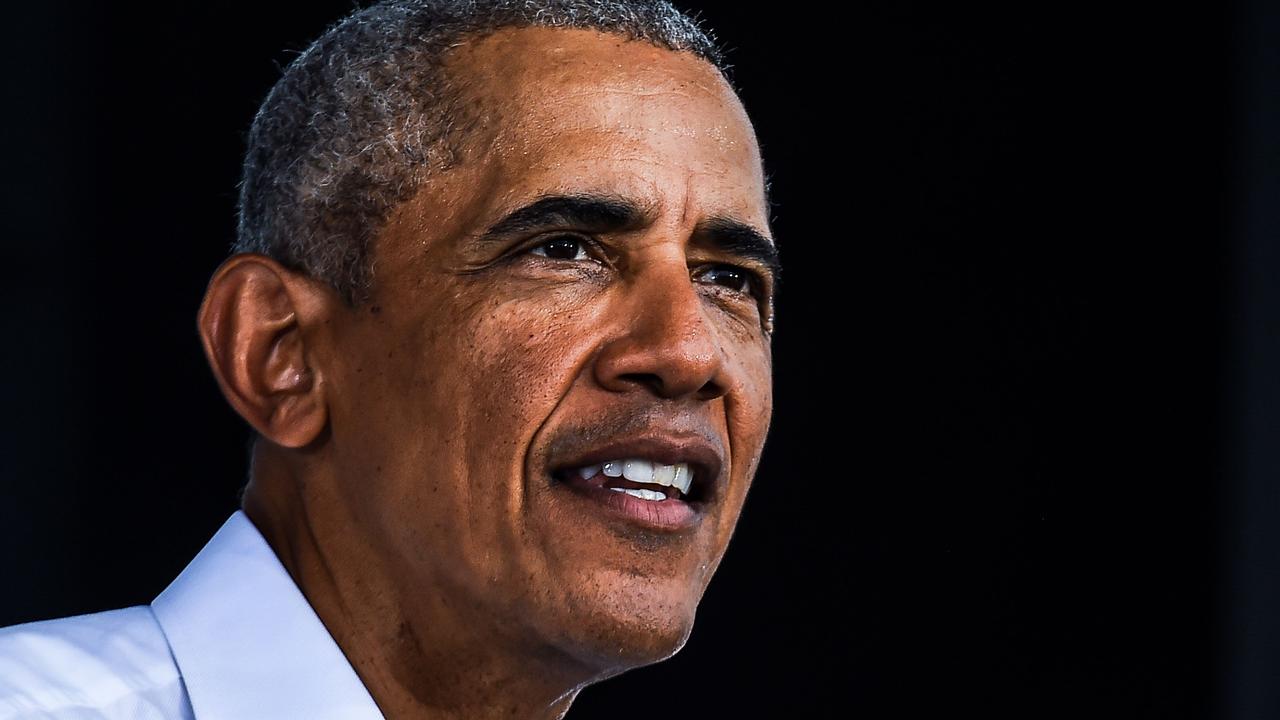
WHY ON EARTH CAN’T THE AMERICAN PEOPLE FIND SOMEONE WHO WOULD MAKE A BETTER PRESIDENT THAN EITHER OF THEM?
Good question. My mind’s eye can see Joe Biden’s vanquished rivals for the Democratic nomination nodding mournfully, along with Donald Trump’s Republican rivals from 2016.
I do not have the answer. But in defence of US politics, I will point out that this sentiment is common in pretty much every country. I heard it a heck of a lot while covering our own election last year, from people who were underwhelmed by both Scott Morrison and Bill Shorten. The recent British election between Boris Johnson and Jeremy Corbyn was another example.
So, people rarely think their politicians are impressive. To be fair, politics is a tough job. The scrutiny is constant and intense, and whatever your opinions, you are guaranteed to be hated by a big chunk of your constituents. You can see why the cream of the crop might not be attracted to it.
IF JOE BIDEN WINS, WILL TRUMP LEAVE THE WHITE HOUSE, AND CAN HE BE FORCED TO LEAVE?
Most people probably know the basis for the question, but just to give it some context, the President has been claiming an increase in the number of people voting by mail this year (due to the pandemic) will lead to widespread voter fraud.
He’s already called the election “rigged” and “fraudulent”. And in September, when asked whether he would commit to a peaceful transfer of power, Mr Trump said he would “have to see what happens”.
So, say he loses, and say mail-in ballots are the decisive factor. What happens next?
If Mr Trump tries to contest the election result, it will be through the courts. He has already foreshadowed this, saying he thinks “this will end up in the Supreme Court”.
Good luck to whichever lawyer has to go before the court on Mr Trump’s behalf and argue that mail ballots should be thrown out en masse. They would need incontrovertible proof of fraud.
That fringe right-wing page on your Facebook feed might tell you such evidence exists, but here in the real world, it absolutely does not.
Should the court slap him down, what is Mr Trump going to do next? Lock himself in the Oval Office and refuse to come out? Order the military whose senior officers he has been publicly slamming for years to intervene on his behalf?
I don’t think this is a plausible scenario. Far more likely, and more consistent with Mr Trump’s personality, is that he will claim his defeat is fraudulent and complain about it very loudly, but leave office voluntarily on January 20.
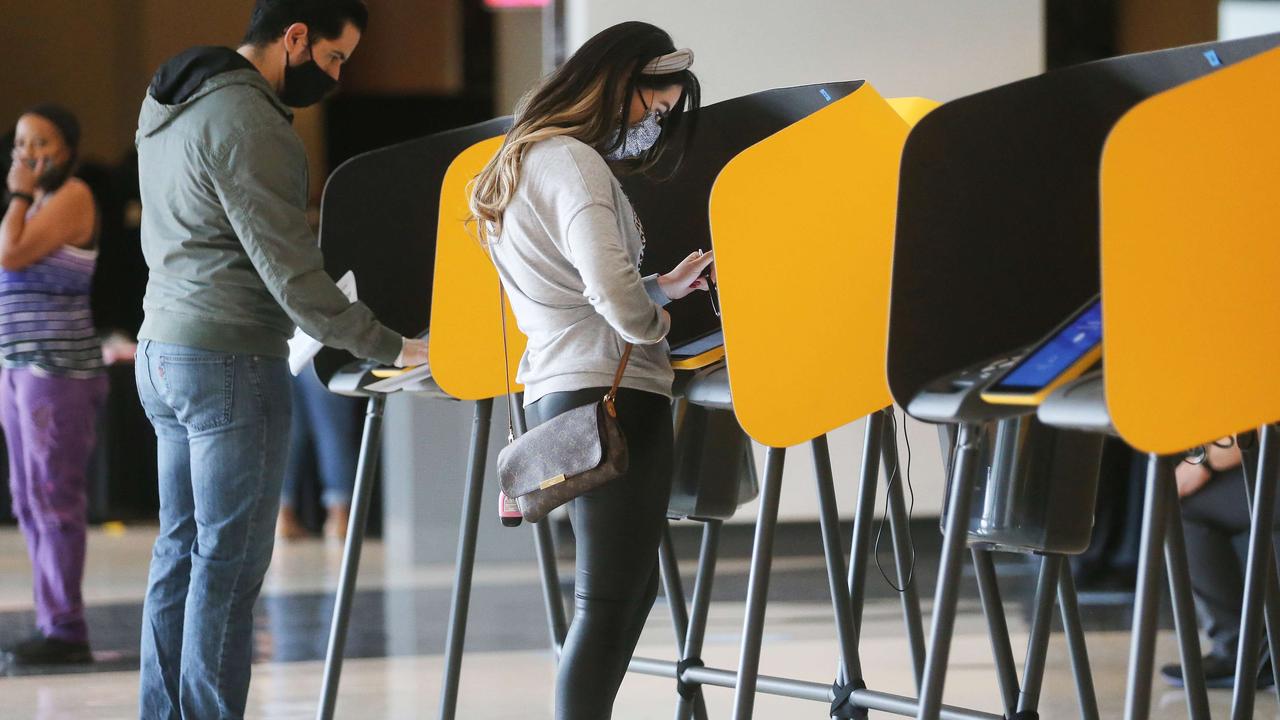
EXPLAIN THE US ELECTORAL COLLEGE. WHY IS THE POPULAR VOTE TREATED WITH LESS VALUE THAN THE ELECTORAL VOTE, AND WHY IS THIS SYSTEM EVEN FAIR?
OK, brace yourself for a history lesson.
America’s presidential election system has remained pretty much unchanged since the 12th Amendment to its Constitution was ratified in 1804. Back then, the logic for having the Electoral College was rooted in the tension between the fledgling country’s two major regions, the North and South.
If the US had adopted a simple direct election system, with the president being decided by the popular vote, there would have been a clear disparity between the two regions.
This was during the era of slavery, and more than half a million slaves lived in the South. None of them could vote. So, in a direct election, the North’s higher voting-eligible population would have given it a huge advantage.
The Electoral College was a compromise between the North and South. It assigns each state electoral votes, based on its number of representatives in both houses of Congress. And when a state’s level of representation in Congress was decided, slaves were counted, albeit as only three-fifths of a person each (a truly monstrous calculation).
The result was a system that gave the South, and particularly the state of Virginia, more political influence. You can see that reflected in the disproportionate number of Virginians among the early presidents.
In the modern context, America’s political system actively protects the interests of rural, less populous states. The Electoral College does it to an extent, but the clearer example is arguably the Senate, which is composed of two senators from each state. That means California, with 40 million people, gets the same number of senators as Wyoming, with 600,000.
Is that fair? Arguably not. It means the vote of someone living in a populous coastal state carries less weight than that of someone living in the rural Midwest. But it also means rural America is not dictated to by a bunch of politicians with no understanding of, or interest in, its problems.
No electoral system in the world is perfect. I’ll let you make your own judgment on this one.


